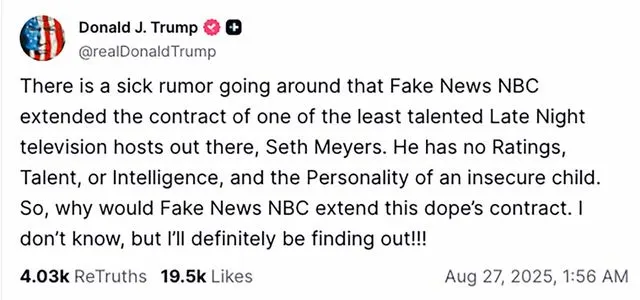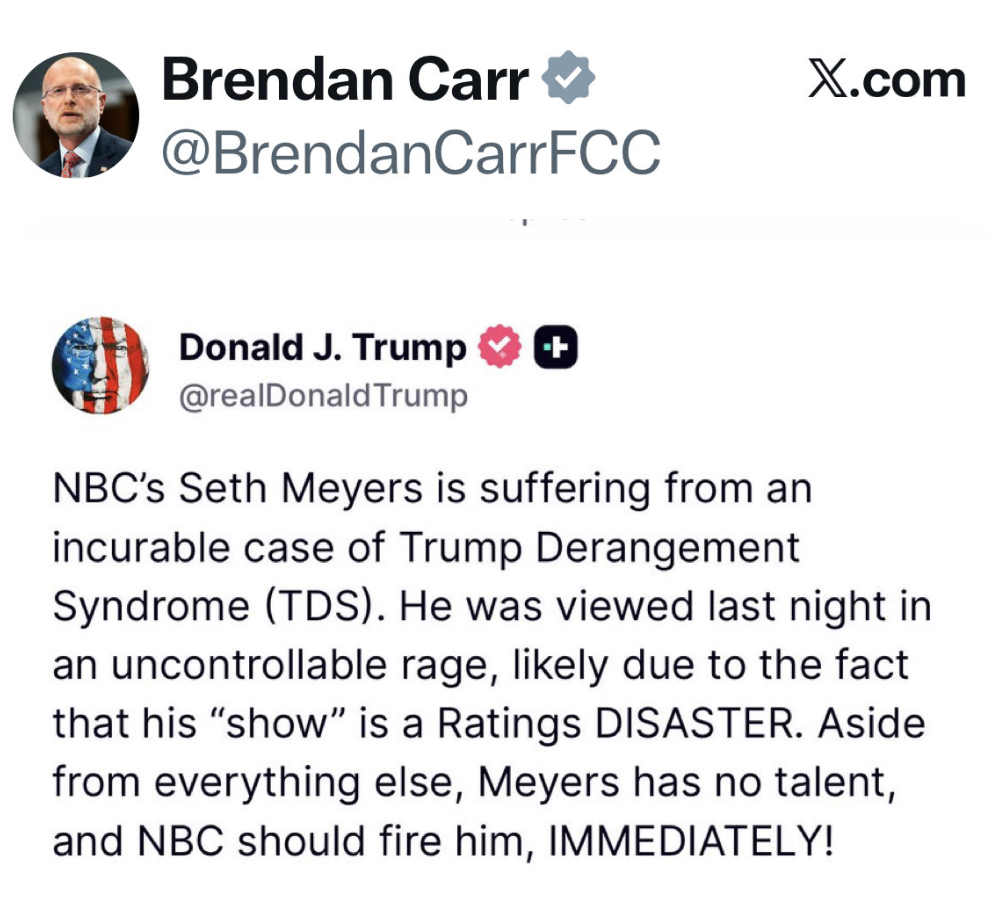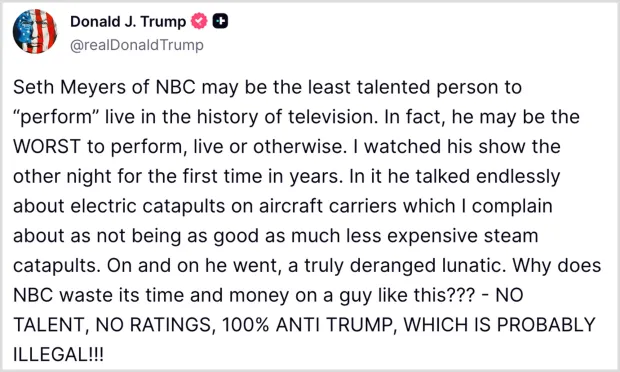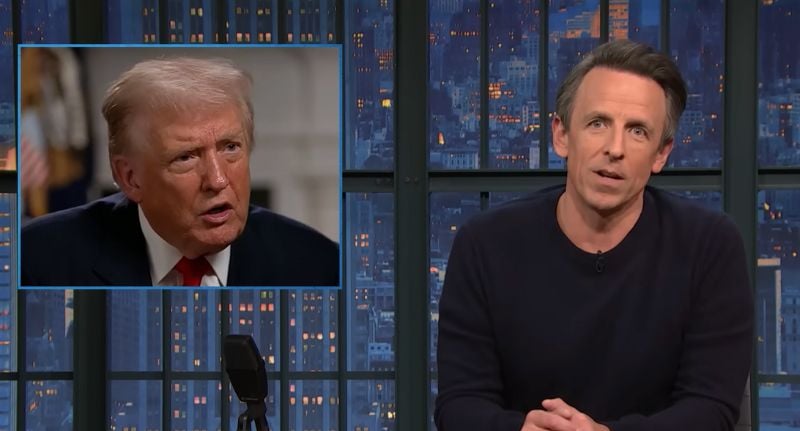NBC’s Late Night with Seth Meyers has long treated Donald Trump as a running punchline, but the former president has turned the tables again, using his social platforms to call the host “no talent,” a “dope,” and someone “suffering from an incurable case of Trump Derangement Syndrome.”
What’s different this time is the timing.
The tirades land just as several major corporate media deals head toward scrutiny from a future Trump administration, putting late-night cheap shots squarely in a much bigger industry conversation.
On, and then there’s the BBC caper. Let’s be honest, it’s a lot to keep track of.
Read more: BBC hit with second doctored Donald Trump clip
Late-night barbs meet corporate pressure
Meyers’ latest jokes – including riffs about slipping Republican support and Trump’s complaint to Fox News that the US lacks skilled workers for key jobs – prompted a furious response.
“NBC’s Seth Meyers is suffering from an incurable case of Trump Derangement Syndrome (TDS),” Trump posted on Truth Social.

“He was viewed last night in an uncontrollable rage, likely due to the fact that his ‘show’ is a Ratings DISASTER. Aside from everything else, Meyers has no talent, and NBC should fire him, IMMEDIATELY!”
The post was quickly reposted by Federal Communications Commission chair Brendan Carr.
While the FCC polices indecency and signs off on major broadcast mergers, its own website notes that “The limitations on the FCC’s power to restrict or ban speech begin with the First Amendment to the U.S. Constitution, which decrees that the federal government ‘shall make no law – abridging the freedom of speech, or of the press.’”

The reposting alone, however, was enough to raise eyebrows inside US networks navigating a shifting political environment.
Read more: ABC boss rejects claims it mirrored BBC’s Trump speech edit
Late-night struggles and merger crunch time
The broader late-night landscape is already wobbling.
Network talk shows have shed linear audiences for years as viewers drift to YouTube, TikTok and podcast monologues.
NBCUniversal has kept Meyers in the chair, in part because he delivers a steady digital footprint ,but even that calculation sits inside a much larger matrix.
NBC is owned by Comcast, which is widely expected to be among the bidders for Warner Bros. Discovery. Any serious attempt at a WBD acquisition would be reviewed under a Trump-led administration, making the political optics around NBC properties unusually charged.
The pattern isn’t new. Earlier this year, Trump labelled Meyers’ content “probably illegal,” writing:
“Why does NBC waste its time and money on a guy like this??? – NO TALENT, NO RATINGS, 100% ANTI TRUMP, WHICH IS PROBABLY ILLEGAL!!!” He also attacked an August contract extension, claiming, “He has no Ratings, Talent, or Intelligence, and the Personality of an insecure child.”

NBC renewed the host for four years anyway – a decision that reflected his digital value more than his linear numbers.
Meanwhile, CBS ended The Late Show with Stephen Colbert effective May 2026, describing the move as a financial decision. That call came shortly after Trump urged CBS parent Paramount Global to fire Colbert, a moment that foreshadowed how political heat can intersect bluntly with corporate cost-cutting.
Stakes for broadcasters
For networks, the challenge is less about the daily barbs and more about the climate shaping upcoming regulatory decisions.
The FCC recently approved the Paramount Global–Skydance Media merger, and more consolidation is lining up behind it.
Political friction around late-night comedy sits awkwardly against this backdrop. No broadcaster wants partisan blowback complicating billion-dollar transactions.
Meyers will inevitably keep mocking Trump. Trump will inevitably respond. But inside NBCUniversal and other major groups, the real story is how much louder and more consequential these culture-war volleys become in a year thick with merger approvals, platform negotiations and a recalibration of late-night economics.
